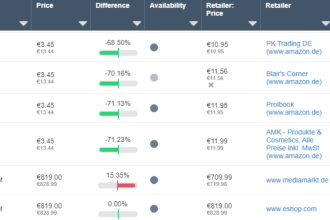According to the government’s most recent data, almost 200,000 people became permanent residents of Canada in 2019.
Residency is one of the key requirements for Canadian citizenship. So, that’s a lot of people who are well on their way to becoming an official Canadian!
And who wouldn’t want to be a naturalized citizen of The Great White North? The locals are friendly, the healthcare is fantastic, and the natural landscape is incredible.
If you want to become a Canadian, you have a long road ahead of you (and a lot of paperwork!) but it is 100% doable. This complete guide takes you through all the steps of Canadian citizenship no matter where you are from.
List of Canadian Citizenship Requirements
Before you start your application for Canadian citizenship, you need to make sure you meet the requirements. There are some exceptions for refugees and citizens of specific countries and those over the age of 54.
But for most adults wanting to emigrate, these are the general Canadian citizenship requirements:
- Be a permanent resident of Canada
- Have been living in Canada for 1,095 days in the last five years
- Have filed income taxes for at least three of those years
- Adequate knowledge of English and/or French languages
- Adequate knowledge of Canada
- No inadmissible criminal history
If you meet all these requirements then you are likely ready to start your Canadian citizenship application. But if you don’t, all is not lost!
For those who are permanent residents but have not spent 1,095 days in the last five years in the country, you only need to sit tight until you have.
And if you need to brush up on your French or English language skills, start learning now. Some people like the Duolingo app, but more intensive courses like the Pimsleur method might help you learn faster.
How to Become a Permanent Resident of Canada
Becoming a permanent resident of Canada is by far the most difficult requirement for Canadian citizenship.
Again, there are exceptions for certain nationalities. But these are the available visa routes to permanent residency for most adults:
- Express Entry Program = Skilled workers in underemployed industries
- Business immigration = Investors, employers, and business owners
- Family Class = Families of existing citizens and permanent residents
- Canadian Experience Class = Young people and students
- Provincial Nominee Program = Workers who can help in specific Canadian provinces
Most of these pathways, like the Express Entry Program visa, are dependent on your skills and what you do for work. Canada publishes a list every year of their skills shortages so make sure you check to see if they’ve listed your occupation.
Some of the ones listed are predictable such as civil engineers, medical staff, and social workers. But some of the occupations might surprise you. For example, the 2021-2022 list includes comedians, athletes, and bakers.
If you are under the age of 30 (or 35 in some cases), you might qualify for the Canadian Experience Class visa. If you do travel to Canada on this visa, you are able to work and travel for up to two years in the country. But if your goal is permanent residency, you should get a job and secure an address as soon as possible.
Those who are eligible for the Family Class visa likely already know if they have a family member already in Canada. But this visa is only available to immediate family members such as spouses, grandparents, children, and siblings. Aunties, uncles, and cousins do not qualify.
How to Pass the Canadian Citizenship Questions
Canada won’t let anyone become a citizen without being able to answer some basic Canadian citizenship questions. You will take the test after you submit your application and have met the other requirements.
According to https://www.citizenshipcanadian.com/, they base the test on the Discover Canada study guide. But you may also find it useful to attend classes or find other resources to help you prepare.
The questions will be these areas of Canadian life:
- Symbols
- Laws
- Government
- History
- Geography
- Economy
The Canadian citizenship test is 30 minutes long and you need to pass 15 of the 20 questions. Some questions are multiple-choice and some are true or false. It is a written test, but it can be oral if you have accessibility requirements.
Documents You Need to Apply for Canadian Citizenship
No visa or citizenship application is complete without a stack of documentation to prepare. This is a general list of everything you need to apply for Canadian citizenship:
- Online physical presence in Canada form (CIT 0407)
- Photocopies of every page in your passport/s
- Photocopies of two types of identification
- Photocopies of proof of English/French language skills
- Two citizenship photos
- Application fee
The photocopies need to be in color. You can prove your English or French language skills by having a bachelor’s degree from an English or French-speaking country.
Information You Need to Apply for Canadian Citizenship
As well as documentation, you also need a lot of information when applying for citizenship. This is a general list of everything you need to know before applying for Canadian citizenship:
- Unique Client Identifier (UCI) code on your permanent residency card
- Personal information e.g. height, gender, eye color, etc.
- All previous names
- Marital status
- All previous addresses in the last five years
- Police certificate
- Work and study history within the last five years
You may need to provide more information depending on your unique history. For example, if you’ve lived in another country besides Canada in the last five years, you will need a police certificate from that country as well.
Writ of Mandamus
- Citizenship
- Permanent residence
- Temporary residence
- Temporary resident permit
- Criminal rehabilitation
Ready to Swap Chocolate Sauce for Maple Syrup?
Canada has so much to offer besides great maple syrup, excellent hockey teams, and phenomenal ski slopes. Canadian citizenship gives you access to world-class education, a safe country for your family to grow up in, and so much more.
Even though the immigration process can sometimes feel overwhelming, when you get that blue passport in your hand it will all be worth it.
Moving overseas can get expensive and if you have not traveled much before you may have tons more questions. Browse our website for all the finance and travel tips you need!













